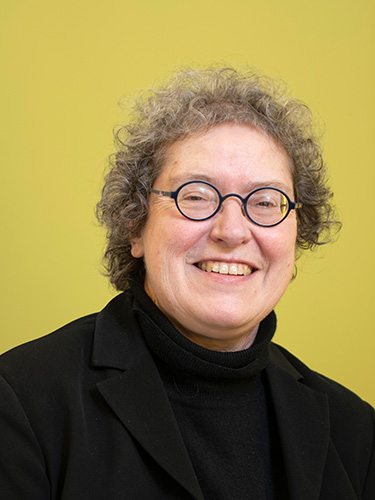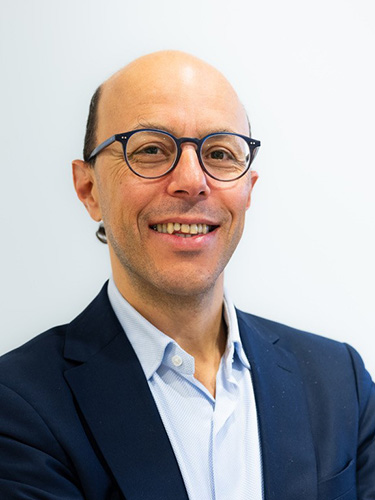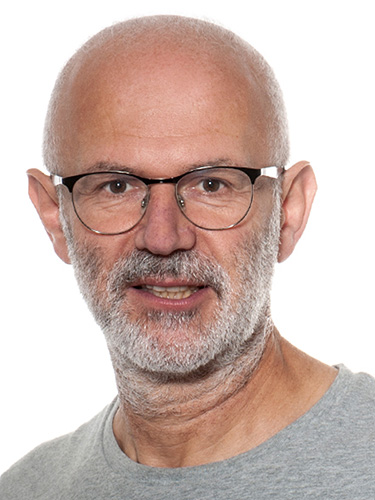Three SNSF Advanced Grants for Basel researchers
Linguist Prof. Dr. Lorenza Mondada, cancer researcher Prof. Dr. Mohamed Bentires-Alj, and diabetes researcher Prof. Dr. Marc Donath have each been awarded one of the highly competitive grants from the Swiss National Science Foundation (SNSF). All three projects address socially relevant issues and make significant contributions to their respective fields.
21 January 2025
With the SNSF Advanced Grants, the Swiss National Science Foundation supports outstanding scientists in Switzerland who choose innovative approaches to reach new insights. The approved projects are funded with an average grant of 1.9 million over a period of five years. Of the 16 projects funded across Switzerland, three were awarded to researchers at the University of Basel.
The SNSF Advanced Grants were launched in 2021 on behalf of the Swiss government to provide researchers at Swiss institutions with a substitute to the ERC Advanced Grants, for which they could not apply, due to limited access to the EU’s Horizon Europe research program.
At the end of 2024, the European Commission announced a transitional agreement effective January 1, 2025. This will grant researchers from Switzerland full access to all Horizon Europe funding calls starting in 2025.
Body and time in social interactions
Communication is more than just talk; facial expressions, gestures, and, more generally, the body are integral parts of social interactions. The interplay of these components, especially their temporal relationships, is complex.
The project led by linguist Prof. Dr. Lorenza Mondada examines how language and the body are simultaneously used during exchanges between people. It aims to develop a new framework that better describes the temporal complexity of language and body movements in social interactions and highlights how this affects the production and understanding of communication.
The project follows an empirical approach: researchers analyze concrete everyday situations in which people communicate using videos and transcriptions. The goal is to develop an understanding of the role time plays in such interactions. The project also provides practical insights, for instance, into managing time pressure, multitasking, or time-critical tasks in society.
Since 2012, Lorenza Mondada has held the Chair of General Linguistics and French Linguistics at the University of Basel. Her research explores various aspects of human interaction in different social contexts.
From dormancy to metastasis: mechanisms of breast cancer progression
Each year, approximately 2.6 million women worldwide are diagnosed with breast cancer, and around 685,000 patients die from the disease. The vast majority of these deaths are caused by therapy-resistant metastases in organs such as the lungs, liver, bones, or brain. These metastases occur because certain cancer cells enter a dormant state and may reactivate years or even decades later. These "sleeping" tumor cells present a significant therapeutic challenge but also offer a unique opportunity to prevent metastasis formation.
The research project led by Prof. Dr. Mohamed Bentires-Alj explores how dormant cancer cells become active again after years and cause metastases. It focuses on the roles of the microenvironment and the immune system in this process. The goal is to understand the mechanisms underlying the dormancy of tumor cells. Based on these insights, the researchers aim to develop new therapeutic approaches to eliminate these cancer cells or keep them inactive, thereby preventing the formation of breast cancer metastases.
Since 2016, Mohamed Bentires-Alj has been a Professor of Experimental Surgical Oncology at the Department of Biomedicine. His research investigates the mechanisms that regulate normal and neoplastic breast stem cells, their metastasis, and their resistance to therapies.
Nutrient distribution in the body and its implications
An elevated blood sugar level is often considered harmful, especially when it persists over time. However, short-term hyperglycemia can be beneficial by providing energy to tissues, enabling them to function properly. During stress, blood sugar levels rise; this prepares muscles for action—either fight or flight—and supports the immune system in defending against pathogens.
The distribution of glucose in the body is a complex process that can be either helpful or harmful, depending on the situation. Targeted therapies should, therefore, not only aim to lower blood sugar levels but also take into account the specific energy needs of different tissues.
The project led by Prof. Dr. Marc Donath aims to create a new understanding of the interplay between the immune system, nerves, and metabolism at the organism level. In the long term, the findings are expected to lead to improved therapies for diabetes and other metabolic disorders.
Since 2010, Marc Donath has been a research group leader at the Department of Biomedicine. His work focuses on investigating the role of the immune system in the development of obesity and type 2 diabetes, with the goal of deriving new therapeutic approaches.





